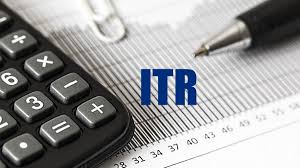Navigating GST Compliance: Essential Tips for Small Businesses
What is GST Compliance? In the ever-changing world of taxation, businesses face different kinds of barriers to ensuring adherence to Goods and Services Tax (GST) regulations. GST, a comprehensive indirect tax imposed on the provision of goods and services, has become a fundamental aspect of financial operations worldwide. This article delves into the fundamentals of GST compliance, exploring the complexities that businesses must go through to ensure legal clarity. Mastering the wide knowledge of GST regulations requires a deep understanding of the laws governing this tax system. From industry-specific intricacies to overarching principles, businesses must be well-versed in the details to ensure smooth compliance. Advantages of Complying with GST Regulations: Complying with GST regulations is not just a legal responsibility, it brings a multitude of advantages. From simplified tax processes to increased business credibility, adhering to GST compliance is pivotal for sustainable growth. Crucial Features of GST Compliance: To achieve GST compliance, businesses must focus on essential elements, including timely registration, submitting returns, and accurate tax payments. Each of these components contributes to maintaining a lawful and transparent financial framework. While the advantages are clear, problems arise in comprehending complex GST laws and navigating frequent regulatory changes. Resolving such GST issues directly is crucial to avoid compliance pitfalls. Contribution of Technology in Adhering GST Compliance: Technology serves as a lifeline when it comes to achieving GST compliance. Automating compliance processes and offering advanced software solutions, greatly simplifies the complex task of adhering to GST regulations. Consequences of Not Complying with GST Regulations: The repercussions of non-compliance with GST regulations can be severe, ranging from legal consequences to financial penalties. Businesses must be aware of the risks associated with ignoring compliance obligations. Examples of Successful GST Compliance: Examining real-life instances of businesses excelling in GST compliance provides valuable and practical insights. Analyzing these case studies allows businesses to gain actionable lessons and strategies that can be applied to achieve and maintain compliance effectively. Ensuring GST Compliance for Businesses: Customizing compliance strategies for small businesses holds immense significance. Implementing streamlined approaches and addressing specific barriers encountered by smaller enterprises contribute to their effective adherence to GST regulations. Forthcoming Movements of GST Compliance: The realm of GST compliance is in a constant state of flux. Anticipating forthcoming changes and staying abreast of technological advancements are vital for businesses to proactively adapt to new regulatory landscapes. Navigating International Transactions and GST: Comprehending the implications of GST is crucial for businesses engaged in international transactions. Enforcing stringent compliance protocols in cross-border engagements ensures the seamless operation of global activities and fosters harmonious collaboration. Educational Resources for Acquiring Knowledge of GST: Accessing high-quality educational resources plays a pivotal role for businesses and individuals seeking to comprehend and comply with GST regulations. Online courses and government materials play a pivotal role in circulating information. Tips for Working with a GST Consultant: When seeking professional advice, businesses must meticulously work with a GST consultant. Key qualities such as expertise, reliability, and a comprehensive understanding of the unique needs of the business are pivotal in making an informed decision. Customary Myths Regarding GST Compliance: Addressing misconceptions surrounding GST compliance is essential for coming to a solid understanding. Challenging misconceptions and delivering factual information contribute to an informed and more confident business entity. Conclusion: In the complex realm of taxation, GST compliance acts as a strong part of financial accountability. In this article, we have delved into the core aspects of GST compliance, including understanding regulations, utilizing technology, and anticipating forthcoming trends. As businesses steadily navigate the complexities of the tax environment, prioritizing compliance remains crucial for ensuring enduring growth.










